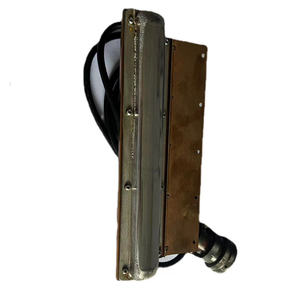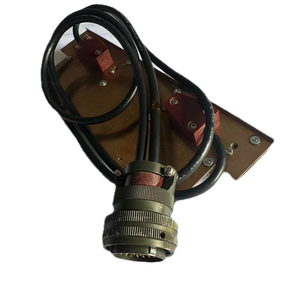X-Ray Leakage Detector: An Overview
The x-ray leakage detector is an essential tool used in medical facilities and industrial applications to ensure safety by detecting leaks in x-ray machines and systems. As businesses become increasingly reliant on sophisticated imaging technology, maintaining equipment integrity becomes paramount. An x-ray leakage detector helps technicians ensure that x-ray machines operate within safe limits, protecting healthcare workers and patients from unnecessary exposure to radiation. Understanding its types, features, applications, and advantages can significantly contribute to making informed purchasing decisions.
Types of X-Ray Leakage Detectors
There are several types of x-ray leakage detectors, each designed for specific applications and operational needs:
- Portable Detectors: These are convenient for on-site evaluations and are usually battery-operated, allowing for easy access in various settings.
- Survey Meters: These devices provide detailed readings of x-ray leakage levels and are typically used in regular quality assurance checks.
- Fixed Detectors: Installed in a specific location, fixed detectors continuously monitor leakage in high-use areas, providing real-time data.
- Digital Detectors: Equipped with advanced digital displays, these detectors offer precise measurements and data logging capabilities, making them user-friendly for elaborate analyses.
Applications of X-Ray Leakage Detectors
The x-ray leakage detector has a wide range of applications across various fields. Its utility often involves:
- Medical Imaging: In hospitals and clinics, these devices help in ensuring that x-ray machines do not emit harmful levels of radiation.
- Industrial Settings: Industries utilizing x-ray systems for non-destructive testing rely on leakage detectors to maintain safety standards.
- Regulatory Compliance: Used by professionals to comply with industry regulations and guidelines that mandate regular radiation checks.
- Research Facilities: Laboratories conducting sensitive experiments may require leakage detection to ensure the safety of both personnel and research integrity.
Features and Advantages of X-Ray Leakage Detectors
Investing in a high-quality x-ray leakage detector offers numerous features and advantages that enhance operational safety and efficiency:
- High Sensitivity: Most detectors can identify even small radiation leaks, ensuring that safety thresholds are not exceeded.
- User-Friendly Interface: Many modern designs include intuitive controls and clear displays, making them accessible even to non-experts.
- Durability: Built to withstand tough working conditions, these detectors often come with rugged casing and reliable internal components.
- Calibration and Versatility: Many leakage detectors can be calibrated for different types of radiation, making them versatile tools for various applications.
- Data Logging Capabilities: Advanced models feature data logging, allowing for historical reviews and better management of radiation safety practices.



































